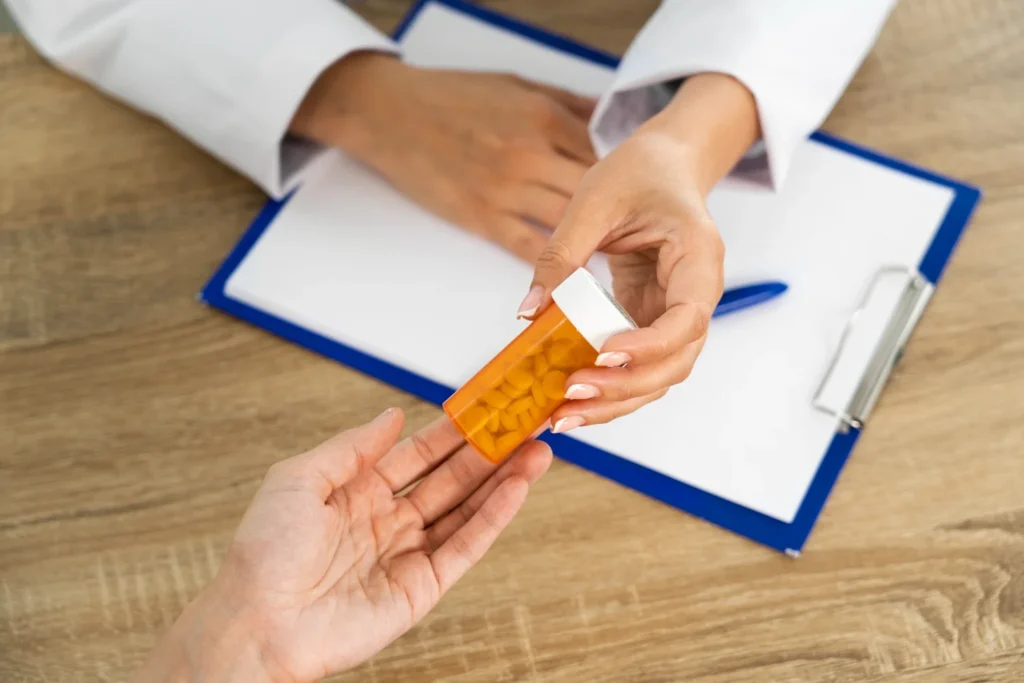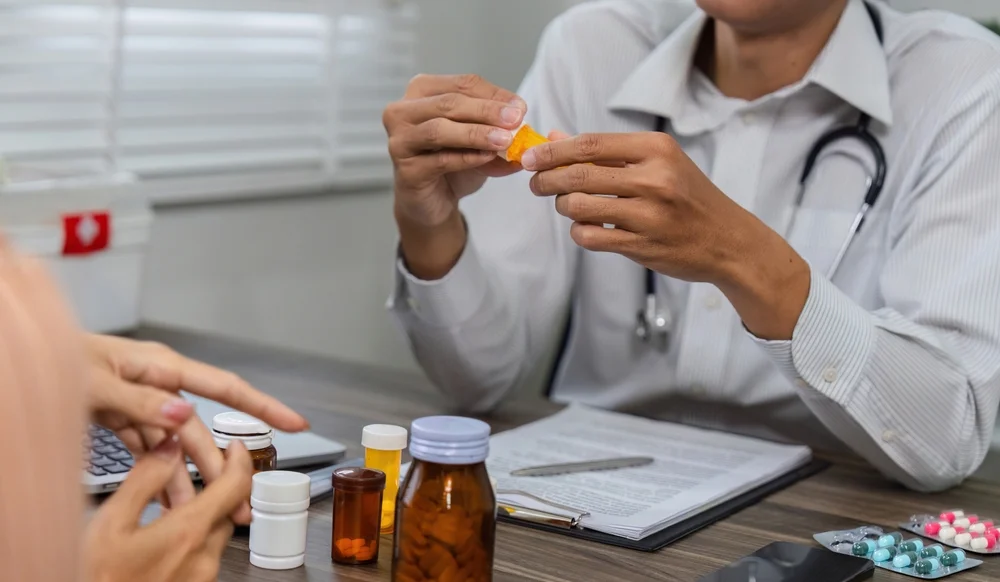Table of Contents
Toggle- What Does “Medication Adherence” Mean?
- Why Is Medication Adherence So Important?
- Common Reasons People Struggle with Adherence
- How to Improve Medication Adherence
- Special Considerations for Older Adults
- What Happens If You Don’t Take Medication as Prescribed?
- Medication Adherence and Chronic Illnesses
- How Doctors and Pharmacists Help
- Tips for Caregivers
- FAQs About Medication Adherence
- 1. Can I drink alcohol while taking my medication?
- 2. What should I do if I miss a dose?
- 3. Is it okay to stop taking medication if I feel better?
- 4. What’s the difference between adherence and compliance?
- 5. Can food affect how well my medicine works?
- 6. Is it dangerous to share my medication with someone who has similar symptoms?
- 7. Can I crush or cut my pills if I have trouble swallowing?
- 8. How do I store my medications properly?
- 9. Can stress or mental health affect medication adherence?
- 10. What are medication interactions and how can I avoid them?
- Conclusion
If you or a loved one takes medicine regularly, you may have heard the term medication adherence. But what does it really mean? Why is it important? And what happens if someone doesn’t follow their medication plan as directed?
This guide will help you understand everything about medication adherence in simple, clear language. Whether you’re a patient, a caregiver, or just someone trying to stay informed, this blog will give you all the answers.
What Does “Medication Adherence” Mean?
Medication adherence means taking your medicine exactly as your doctor or pharmacist told you to. That includes:
- Taking the right dose
- Taking it at the right time
- Taking it for the full length of time prescribed
- Following instructions like whether to take it with food or on an empty stomach
For example, if your doctor says to take one pill every morning with breakfast for 30 days, and you do that, you are being adherent.

Why Is Medication Adherence So Important?
Many health conditions improve only when medications are taken the right way. Here’s why it matters:
1. It Helps You Feel Better
When you take medicine as prescribed, it’s more likely to work. This is true for both short-term illnesses (like infections) and long-term ones (like high blood pressure or diabetes).
2. It Prevents Complications
Skipping doses or stopping early can make your condition worse or even life-threatening. In some cases, like with antibiotics, it can cause bacteria to become resistant.
3. It Reduces Emergency Room Visits
People who do not follow their medication plans are more likely to end up in the hospital or ER. Adherence can keep you safer and healthier.
4. It Saves Money in the Long Run
Although medicine costs money, treating a worsened illness or hospital stay costs much more. Staying on track with medication can save thousands of dollars.
Common Reasons People Struggle with Adherence
You’re not alone if you’ve ever missed a dose or stopped taking medicine early. Many people face challenges with sticking to their medication plan. Here are some of the most common reasons:
1. Forgetfulness
Busy schedules, memory issues, or daily distractions can make it easy to forget to take pills.
2. Side Effects
Some medications cause uncomfortable side effects like nausea, dizziness, or tiredness. This can make people want to stop taking them.
3. Cost
Medicine can be expensive, especially for people without insurance. Some may skip doses or cut pills in half to save money.
4. Lack of Understanding
People may not fully understand why they need a medication or how to take it properly.
5. Feeling Better
Ironically, once people start feeling better, they sometimes stop taking their medicine, thinking they no longer need it. This is especially risky for chronic conditions like high cholesterol.
6. Fear or Mistrust
Some people worry about becoming dependent on medicine or mistrust doctors or drug companies.
How to Improve Medication Adherence
Improving medication adherence doesn’t always require major changes. Often, small steps can help a lot. Here are some useful tips:
1. Use a Pill Organizer
Weekly or monthly pillboxes can help you keep track of what you’ve taken. They are especially helpful for those who take multiple medications.
2. Set Reminders
Use smartphone alarms, apps, or sticky notes to remind you when it’s time to take your medicine.
3. Simplify Your Routine
Ask your doctor or pharmacist if you can take fewer doses a day or combine pills. Taking one pill once a day is easier to manage than three pills at different times.
4. Talk to Your Doctor About Side Effects
If your medicine causes side effects, don’t just stop it. Let your healthcare provider know. They may adjust the dose or prescribe something else.
5. Look Into Cost-Saving Options
Ask your doctor or pharmacist if there’s a generic version of the medicine. You can also explore patient assistance programs or discount cards.
6. Get Support
Tell a friend or family member about your medicine routine. They can help you stay on track, especially if you’re dealing with memory issues.
Special Considerations for Older Adults
Older adults often take several medications every day. This makes medication adherence even more important and more challenging. Age-related memory decline, vision problems, and physical limitations can interfere with taking medicine correctly.
Solutions include:
- Easy-to-open pill containers
- Large-print labels
- Caregiver involvement
- Regular reviews with a pharmacist to avoid drug interactions
What Happens If You Don’t Take Medication as Prescribed?
Skipping or misusing medications can have serious consequences. Here are some real examples:
- Heart disease: Not taking blood pressure or cholesterol meds can lead to strokes or heart attacks.
- Diabetes: Skipping insulin or oral medications can cause dangerously high or low blood sugar.
- Asthma: Forgetting inhalers can lead to severe breathing problems or even hospitalization.
- Mental health conditions: Stopping antidepressants or anxiety meds suddenly can cause withdrawal or return of symptoms.
Even if you don’t feel immediate changes, the damage may be happening silently inside your body.
Medication Adherence and Chronic Illnesses
If you live with a chronic condition, you probably need to take medicine for many months or years. Adherence is even more critical in these cases because:
- The illness doesn’t go away completely
- Stopping medication may not cause symptoms right away, but it still increases risk
- It’s part of a long-term health plan to stay stable and avoid complications
Examples of chronic illnesses where adherence is crucial include:
- Hypertension
- Diabetes
- HIV/AIDS
- Asthma
- Depression
- Arthritis

How Doctors and Pharmacists Help
Healthcare providers play a big role in helping you stay adherent. Here’s how:
1. Clear Communication
A good doctor will explain why the medicine is important, how to take it, and what to expect. Don’t be afraid to ask questions.
2. Follow-Up Visits
Doctors often schedule follow-ups to see if the medicine is working and if you’re sticking to the plan.
3. Medication Reviews
Pharmacists can review all your medications and suggest changes or combinations that make it easier for you.
4. Refill Reminders
Many pharmacies offer auto-refill programs or call you when it’s time to pick up your meds.
Tips for Caregivers
If you care for someone who takes medications, your role is essential. You can help by:
- Keeping a chart or checklist of their meds
- Watching for signs of missed doses
- Attending doctor visits and asking questions
- Helping them organize their medications weekly
- Making sure they understand why each medicine is needed
Your support can make a big difference in their health outcomes.
Technology Tools That Can Help
Modern tools can make staying on schedule easier. Here are a few examples:
- Medication reminder apps: Apps like Medisafe, MyTherapy, and CareZone alert you when it’s time to take pills.
- Smart pill bottles: These bottles light up or beep when it’s time to take your medicine.
- Text message reminders: Some pharmacies and clinics send SMS reminders.
- Automatic dispensers: These devices give out the right dose at the right time.
FAQs About Medication Adherence
1. Can I drink alcohol while taking my medication?
It depends on the medication. Some drugs interact badly with alcohol and can cause side effects like drowsiness, dizziness, liver damage, or reduced effectiveness. Always check with your doctor or pharmacist before drinking alcohol while on any medication.
2. What should I do if I miss a dose?
Most medications have specific instructions for missed doses. Some say to take it as soon as you remember, while others suggest skipping it if it’s close to the next dose. Never double up unless your doctor says it’s okay. Read the medication label or ask your healthcare provider for guidance.
3. Is it okay to stop taking medication if I feel better?
No, you should never stop a prescribed medication without consulting your doctor. Feeling better may mean the medication is working, and stopping it too early could cause your condition to return or worsen.
4. What’s the difference between adherence and compliance?
While the terms are often used interchangeably, adherence usually refers to the patient actively choosing to follow a treatment plan, while compliance implies simply following orders. Adherence emphasizes partnership between the patient and provider.
5. Can food affect how well my medicine works?
Yes. Some medications need to be taken with food to be absorbed properly, while others work best on an empty stomach. Certain foods can also interfere with specific drugs (like grapefruit with cholesterol medicine). Always follow the label instructions.
6. Is it dangerous to share my medication with someone who has similar symptoms?
Yes, sharing medication is unsafe. What works for you may harm someone else, especially if they have allergies, other health conditions, or are on different medications. Always discourage sharing prescriptions.
7. Can I crush or cut my pills if I have trouble swallowing?
Not all pills are safe to crush or split. Some are time-released or coated to protect your stomach. Crushing them could change how they work. Talk to your doctor or pharmacist before altering any medication.
8. How do I store my medications properly?
Most medications should be stored in a cool, dry place away from sunlight and moisture. Avoid keeping them in bathrooms due to heat and humidity. Some may need refrigeration. Always read the label or ask a pharmacist.
9. Can stress or mental health affect medication adherence?
Yes. Anxiety, depression, or overwhelming life stress can make it harder to remember or prioritize medications. If you’re struggling emotionally, talk to a healthcare provider. Mental health support can also improve medication habits.
10. What are medication interactions and how can I avoid them?
Medication interactions happen when one drug affects how another works, causing stronger effects, weaker effects, or side effects. To avoid them, tell your doctor about all medications, supplements, and herbs you’re using. Keep an updated list and share it during every medical visit.
Conclusion
Medication adherence may sound like a complex term, but it comes down to one simple thing: taking your medicine the right way, every day. It’s one of the most effective habits you can build to protect your health, avoid complications, and feel your best.
If staying consistent has been a challenge for you, you’re not alone. Many people need a little support, and small changes can make a big difference.
Talk to your doctor. Set reminders. Keep a routine. And don’t hesitate to ask for help.At Care RX Pharmacy, we’re here to support you, to help you stay on track with your medications. Your health matters, and we’re here to walk with you every step of the way.






